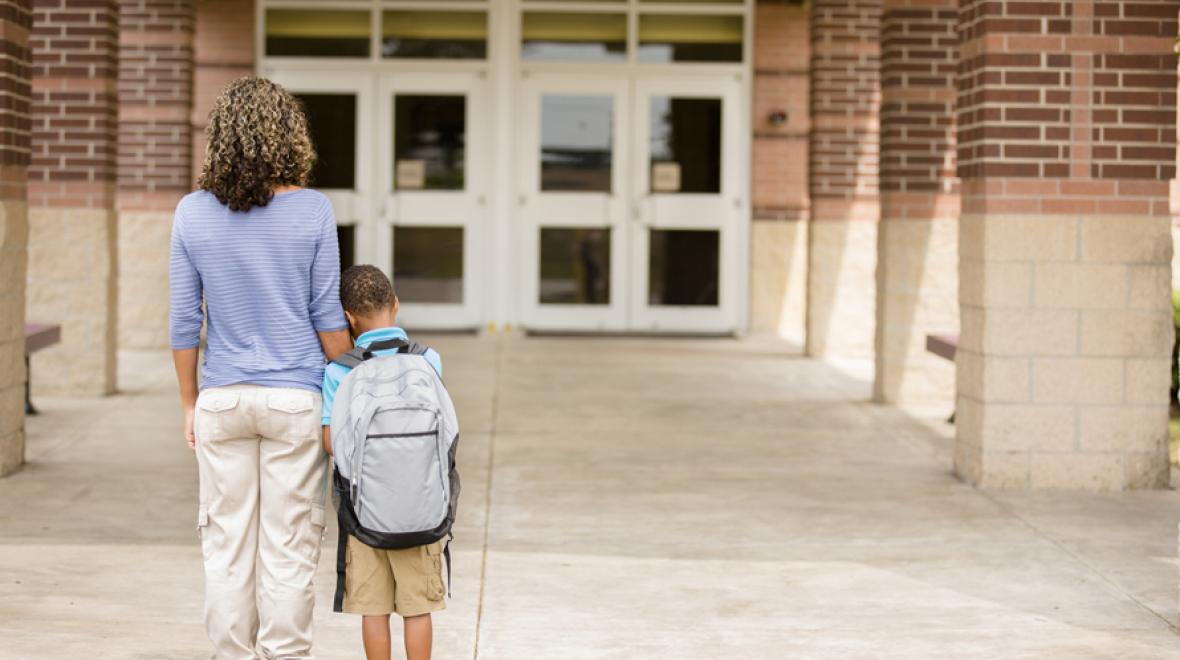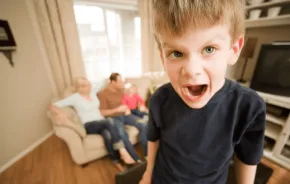
Getting your children ready for the new school year should be an exciting time for both children and parents, but what’s a parent to do when the thought of sending kids off triggers major feelings of stress, fear and anxiety? If you constantly feel overwhelmed by a wave of emotions at morning drop-offs, or if you suspect that your frantic search for a GPS smartwatch to track your child’s every move (I’m sure I’m not the only parent who has considered one before researching how reportedly unsafe and hackable they can be), then you may suffer from more than just a case of over-protectiveness.
Parents who suffer from separation anxiety disorder may be perceived as controlling or overprotective and may have an unusually difficult time at the start of each school year or day, suffering from excessive worry, sadness or fear that loved ones may be harmed while they’re out of their sight and care. These feelings can often trigger an unreasonable need to know exactly where the child is at all times and stir up the parent’s own fear of being alone.
“One of the primary jobs of the brain is to keep us safe, and once we have children, their safety is even more important to us than our own. The mind is wired to look out for danger and to short-circuit our rational thinking in times of crisis to preserve life,” says Dr. Akhu, a licensed clinical psychologist and author of “Cultivating Inner Peace.” “Unfortunately, our brains have yet to evolve to tell the difference between real-life threatening danger and perceived threat. Therefore, the brain can respond to a school drop-off as if it were a rabid dog attack,” she explains.
For a long while, separation anxiety was believed to be a childhood disorder, most prevalent in kids younger than 2. But according to JAMA, 43 percent of people who experience separation anxiety develop the condition after the age of 18. So, if you suffer from separation anxiety, be gentle with yourself — this is actually a legitimate grown-up thing.
“Some people are more prone to their minds responding to perceived danger due to genetics and experience, especially that of trauma from their childhood,” says Dr. Ahku. “When our thoughts put our brains in ‘flight, fight, freeze’ protection mode, we are experiencing anxiety.”
The good news is, you don’t have to be embarrassed, just suck it up or suffer alone. There are things that you can do that will help you identify and manage your separation anxiety so that you can begin to resolve it.
Dr. Ahku shares the following expert tips to help parents cope with the overwhelming anxiety that can be triggered by things such as sending kids off to activities and school-day separations:
Find a “reality test partner”
Choose a friend, a fellow parent, your significant other or a therapist to help you sort through the roots of your anxiety. Try to articulate your fears. Then, separate your worries into two categories. Category one is things you can control; for example, building relationships of mutual trust with the school staff. And then there is the second category, those items that are out of your control, such as being able to know where your child is every second of the day.
Control what you can
The next step is to make changes in order to better control the things you can. Meet with the teacher; review the school’s protocol for emergencies; teach your child your phone number and how to dial 911.
For the things you can’t control, try using a mantra
Create positive statements to help you combat negative thoughts about the things beyond your control. For example, “I am raising a strong, empowered future adult.”
Learn to breathe
Finally, you can anticipate challenging moments where you may feel overwhelmed. Learning to use breathing techniques can help you reduce the anxiety reaction in your mind and body. Dr. Ahku’s favorite and recommended method is square breathing:
- Inhale for a slow count of four.
- Hold the breath in for a slow count of four.
- Exhale for a slow count of four.
- Wait (don’t inhale) for a slow count of four before the next inhalation.
- Repeat at least four times.
It’s imperative to manage anxiety for the wellness of the entire family. “It is important that parents find positive ways to work through their anxiety to not allow unrealistic fears to get in the way of wonderful childhood experiences,” encourages Dr. Ahku. Children look to us for cues. Ideally, we want to help our kids gain the confidence to explore the world as individuals, entrusting them to safe spaces and experiences away from us so that they have the freedom to develop into healthy, independent, capable human beings. Know that you’re a great parent and being able to send them off with peace of mind is within your grasp.











